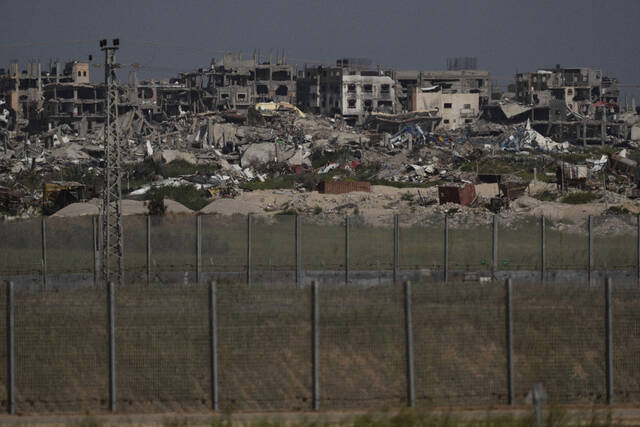The highest court of the United Nations has instructed Israel to improve the situation in Gaza by opening additional land crossings to allow essential supplies such as food, water, fuel, and other items into the war-torn area.
The International Court of Justice has issued two new temporary measures in response to a case brought by South Africa, which accuses Israel of committing acts of genocide during its military campaign following the Oct. 7 attacks by Hamas. Israel denies the accusation, asserting that its military campaign is defensive and aimed at Hamas, not the Palestinian people.
South Africa requested further temporary measures, including a cease-fire, due to the famine in Gaza. Israel opposed the issuance of new orders by the court.
In its legally binding ruling, the court instructed Israel to promptly take actions to ensure the uninterrupted provision of essential services and humanitarian aid, including food, water, fuel, and medical supplies.
Additionally, the court directed Israel to immediately prevent its military from taking actions that could harm the rights of Palestinians under the Genocide Convention, including interfering with the delivery of humanitarian aid.
Israel has been directed to report back within a month on its compliance with the orders.
In response to a violent cross-border attack by Hamas on Oct. 7 that resulted in 1,200 deaths and 250 hostages, Israel declared war. It carried out airstrikes and a ground offensive, leading to the death of over 32,000 Palestinians, displacement of over 80% of Gaza’s population, and widespread destruction.
The U.N. and international aid agencies state that nearly the entire population of Gaza is struggling to access sufficient food, with hundreds of thousands of people at risk of famine, particularly in the hardest-hit northern part.
South Africa positively received the decision, describing it as significant.
The South African president stated, “The fact that Palestinian deaths are not only due to attacks but also to disease and starvation underscores the need to protect the group’s right to exist.”
Hamas insisted in an online statement that the ruling must be enforced by the international community.
The militant group stated, “It must be put into effect immediately, to prevent this decision from being ignored.”
The Palestinian Foreign Ministry expressed gratitude to South Africa, characterizing the case as “a crucial step in the global effort to hold Israel responsible for committing genocide.”
The Israeli Foreign Ministry did not provide an immediate comment.
In an earlier written response to South Africa’s request for additional measures, Israel denounced South Africa's claims as baseless, morally reprehensible, and an abuse of the Genocide Convention and the Court itself.
Following the initial closure of Gaza's borders at the start of the war, Israel began allowing the entry of humanitarian supplies. It contends that there are no restrictions on the amount of aid permitted into Gaza and accuses the United Nations of inadequately coordinating the deliveries.
The United Nations and international aid groups say that Israeli military restrictions, ongoing hostilities, and the breakdown of public order have made it difficult to deliver aid.
Israel has been collaborating with global partners on a proposal to start providing aid by sea in the near future.
Israel has clashed repeatedly with the United Nations, especially with UNRWA, the U.N. agency for Palestinian refugees and primary provider of aid in Gaza. Israel accuses the agency of tolerating and even working with Hamas, a claim that UNRWA denies.
According to the court's order, Palestinians in Gaza are not just at risk of famine, but famine is already occurring. This is based on a report from the United Nations Office for the Coordination of Humanitarian Affairs stating that at least 31 people, including 27 children, have died from malnutrition and dehydration.
The world court stated that previous orders placed on Israel after significant hearings in South Africa's case do not fully address the consequences of the changing situation in Gaza.
On Tuesday, the military announced that it examined 258 aid trucks, but only 116 were delivered within Gaza by the United Nations.
COGAT, the Israeli military body responsible for Palestinian civilian affairs, has also initiated trial runs to inspect humanitarian aid at Israel's main checkpoints in the south and then use land crossings in central Gaza to attempt to bring aid to the devastated northern part of the Strip. The agency did not immediately comment on the ICJ ruling.



